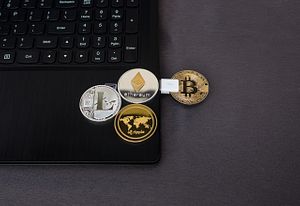On Monday, the U.S. Department of Justice announced that it was charging two Chinese nationals with laundering more than $100 million in cryptocurrency that had been stolen by “North Korean actors.” The stolen funds were acquired from a cryptocurrency exchange and were stolen in 2018, the Justice Department said in a statement.
The two Chinese nationals, named as Tian Yinyin and Li Jiadong, were charged with “money laundering conspiracy and operating an unlicensed money transmitting business.” The charges come at a time of heightened scrutiny by the Justice Department of both North Korea-linked cybercrime and Chinese economic espionage and cybercrime.
“These defendants allegedly laundered over a hundred million dollars worth of stolen cryptocurrency to obscure transactions for the benefit of actors based in North Korea,” Assistant Attorney General Brian A. Benczkowski of the Justice Department’s Criminal Division said in a statement Monday. “Today’s actions underscore that the Department will pierce the veil of anonymity provided by cryptocurrencies to hold criminals accountable, no matter where they are located.”
“Today, we are publicly exposing a criminal network’s valuable support to North Korea’s cyber heist program and seizing the fruits of its crimes,” U.S. Assistant Attorney General John C. Demers of the Justice Department’s National Security Division added. “This case exemplifies the commitment of the United States government to work with foreign partners and the worldwide financial services industry to disrupt this blended threat.”
North Korea has turned to illicit cybercrime, leveraging cryptocurrencies, to fund its regime’s activities. Given wide-ranging United Nations Security Council sanctions on several of its economic sectors, the country has been implicated in several cybercrimes, including the WannaCry 2.0 ransomware attack and several attacks on South Korea-based cryptocurrency exchanges.
Last year, the the United Nations Panel of Experts on North Korea sanctions established pursuant to Security Council resolution 1874 found that Pyongyang had turned to cyberattacks on financial institutions and even engaged in so-called cyptojacking, whereby hackers install software that leverages the processing power of attacked systems to ‘mine’ cryptocurrencies that can then be transferred to cryptocurrency wallets controlled by North Korean actors.
The case involving Tian and Li identifies a key aspect to illicit activities involving cryptocurrency: the need to convert back to fiat currency. Cryptocurrency, in itself, is not a useful medium of exchange for all goods and services so North Korea, with its limited access to the global financial system, still needs to find ways to acquire fiat currency. The charges against Tian and Li suggest that U.S. investigators and prosecutors may be focusing their energies on this part of Pyongyang’s cryptocurrency-related activity amid difficulty tracking the full extent of North Korea’s cybercrimes.

































